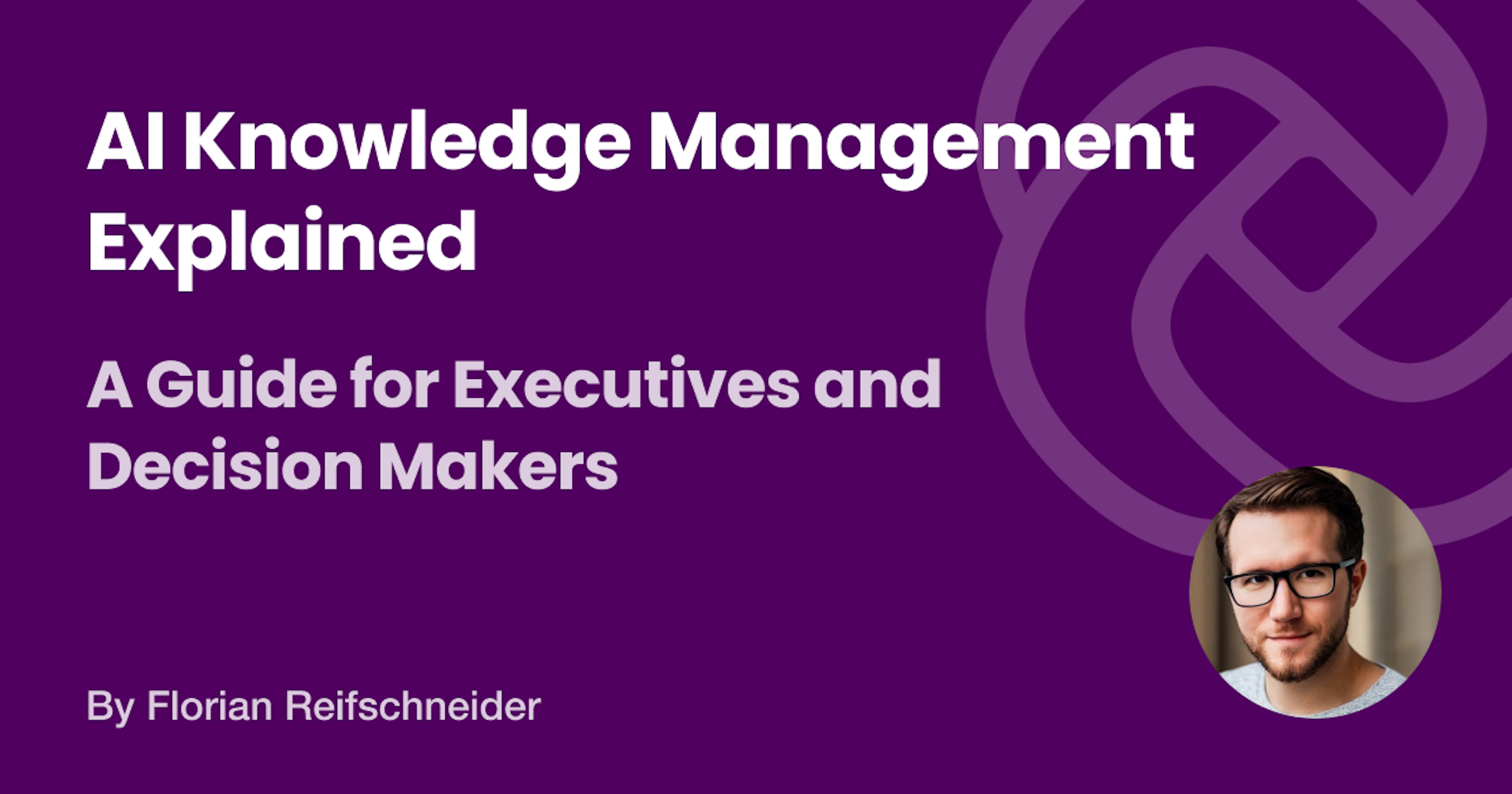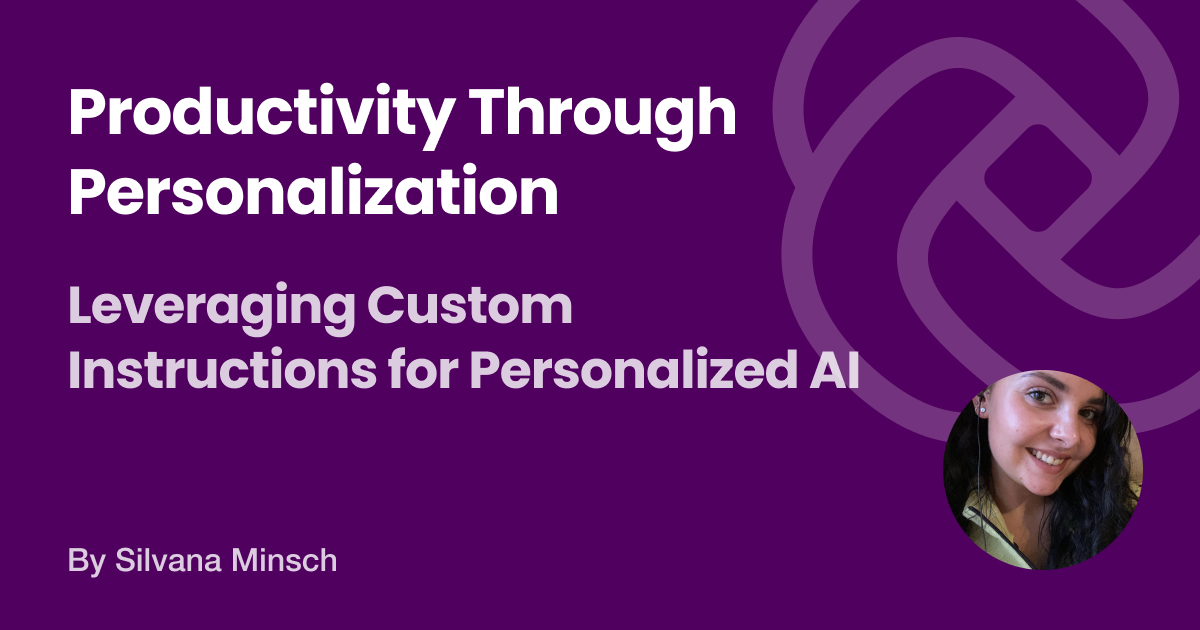
AI Knowledge Management Explained: A Guide for Executives and Decision Makers
Published on April 30th, 2024
As an executive, you are likely spending significant amounts of time thinking about how AI can benefit and transform your business. However, understanding how AI can be used to manage and utilize your organization's knowledge effectively can be challenging without a technical background. In this article, we'll dive deep into the topic of AI knowledge management, allowing you to make informed decisions for your organization.
Understanding AI Knowledge Management
AI knowledge management is not just traditional knowledge management with added AI on top. It's a fundamentally different approach that focuses on the end user rather than the knowledge itself. By applying the technologies that power ChatGPT and Google Search, AI systems can help you make sense of large amounts of data, extract valuable insights, and make knowledge more accessible to your employees. The result? Improved efficiency, better decision-making, and a more agile, knowledge-driven organization.
Real-World Applications of AI-driven Knowledge Management
The potential use cases for managing knowledge with AI are endless. We have collected a few examples of how AI can transform knowledge management across different industries:
- Finance: AI-powered assistants can instantly answer complex regulatory questions, saving employees countless hours of manual research and ensuring compliance.
- Healthcare: AI tools can help doctors access relevant treatment guidelines and drug information, improving patient outcomes and streamlining care delivery.
- Manufacturing: AI systems can provide instant guidance to technicians, limiting the need to manually look up maintenance instructions, in order to reduce the time it takes to resolve issues.
- Retail: AI-driven knowledge management can empower sales associates with instant access to product information, customer preferences, and inventory data, enhancing the customer experience.
These are just a few examples of how AI can drive measurable value across different industries. By leveraging AI to unlock the full potential of your organization's knowledge, you can gain a significant competitive advantage.
Best Practices and Considerations
Introducing AI-powered knowledge management into your organization does not come without its own challenges, especially when it comes to the acceptance within your organization. To ensure a successful implementation, we have compiled these best practices that you should keep in mind:
- Identify key knowledge sources: Determine which data sources are most critical for your organization and prioritize their integration into your AI system accordingly. Organizations should follow the Pareto principle, as the most value can be derived from a select number of sources.
- Ensure data quality and security: High-quality, accurate data is preferable for all knowledge management scenarios, however, in contrast to traditional knowledge management systems, AI systems can also take advantage of unstructured and noisy data. Equally important is ensuring that data remains secure and compliant with privacy regulations.
- Measure success and ROI: In order to measure and track your investment, you should establish clear metrics for evaluating the impact of your AI knowledge management initiatives. This allows you to demonstrate a sound ROI case and can justify continued investment.
- Address common concerns: Clearly communicating these kinds of changes throughout your organization is crucial. Be proactive in addressing concerns around data privacy, integration with existing systems, and the role of AI in empowering (rather than replacing) employees.
Implementing AI Knowledge Management with Omnifact Spaces
If you're looking for a simple yet powerful tool to implement AI-driven knowledge management in your organization, you might want to consider Omnifact Spaces. With Omnifact, you can create custom AI assistants tailored to your specific needs and knowledge bases. By ingesting and processing your internal data sources, these AI assistants can provide your employees with instant access to relevant information, answer questions, and help with decision-making.
Key features of Omnifact Spaces include:
- Data privacy: Omnifact Spaces ensures that your sensitive information remains secure and confidential, addressing a critical concern for many organizations.
- Ease of setup: With a user-friendly interface and minimal technical requirements, Omnifact Spaces makes it simple for your business to get started with AI knowledge management.
- Customization: AI assistants can be tailored to specific departments, roles, or use cases, ensuring that they provide maximum value to each user within your organization.
With Omnifact Spaces, you can address the common concerns and best practices mentioned earlier in this article, ensuring a successful implementation of AI knowledge management in your organization.
Start Managing Knowledge with AI
Knowledge management with AI has the potential to transform the way your business uses its collective knowledge, giving you a chance to improve efficiency, drive innovation, and gain a competitive advantage. By understanding the concepts behind AI knowledge management and exploring tools like Omnifact Spaces, you can make informed decisions and use the potential of AI for your organization.
As the AI landscape continues to evolve, the importance of effective knowledge management will only grow. By staying informed and adopting best practices, you can position your business for success in the coming months and years. To learn more about how Omnifact can help your organization unlock the value of AI knowledge management, schedule a live demo today.

